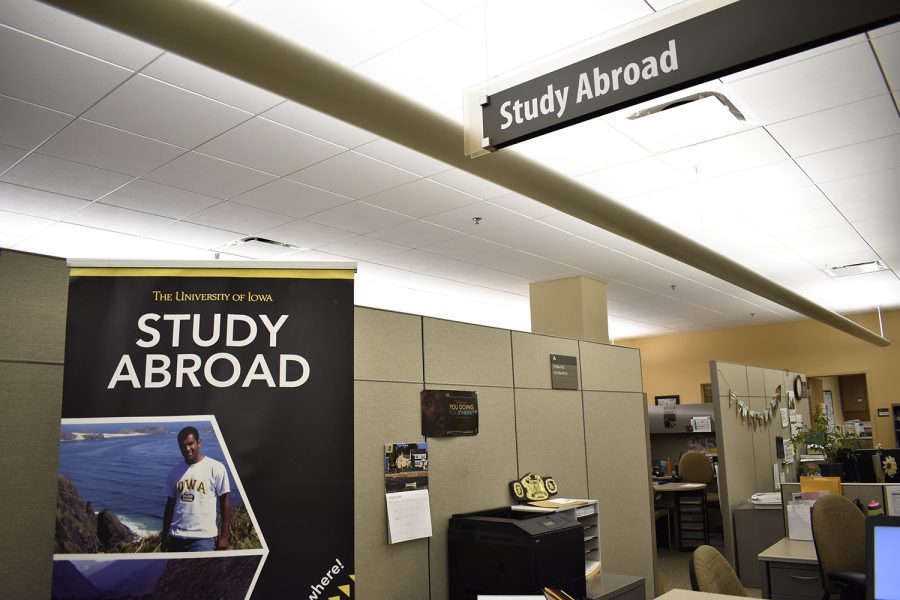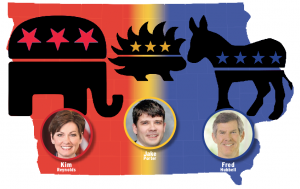Council of Deans recommend a plan to raise money for study abroad scholarships
A new proposal offers three parts to increase study abroad rates, including a $15-per-semester fee for all undergraduate students that will go towards study abroad scholarships.
The University of Iowa Study Abroad Office in the Old Capitol Mall is seen on Tuesday, Sept. 25, 2018.
September 25, 2018
Around a year and a half ago, a discussion between the Council of Deans and the University of Iowa provost prompted the creation of a group that would recommend an approach to boost study-abroad numbers.
Deans Downing Thomas of International Programs, Daniel Clay of the College of Education, and Sarah Gardial of the Tippie College of Business have spearheaded the initiative.
According to statistics from the UI International Programs website, 1,242 students studied abroad during the 2016-17 academic year.
“We came up with the recommendation that we need a three-pronged approach,” Thomas said.
RELATED: Grant expands UI winter course on India water poverty
The three “prongs” include a fee to provide an incentive for students to get back a $15 study-abroad fee by actually studying abroad, an emphasis on philanthropy, and better communication opportunities through advising and dispelling common misconceptions about study abroad, Thomas said.
For example, students believe studying abroad disrupts their education, sets them back, and forces them to graduate later, he said.
As of now, the proposed fee is $15 per semester for all undergraduate students. Thomas said the fee is unlike any other, because all revenues generated are guaranteed to go back to students.
“For example, you’ve got a technology fee, you’ve got a rec fee — yes, they definitely benefit students, but it goes to infrastructure and personnel in some cases,” he said. “This fee would not go to those things; it would go back to students 100 percent.”
Thomas foresees the fee significantly increasing opportunities for students to study abroad.
“Looking at the number of scholarships we have currently through private donations and what this would add to that pool, we would increase the dollars available for study abroad by 77 percent,” he said.
Though this recommendation is designed to increase university-wide study-abroad participation rates and possibly match it to the 33 percent of students who express interest in study abroad, Gardial sets an ambitious goal for Tippie students.
She said out of the four options included in the RISE (research, internship, study abroad, and experiential learning) program that Tippie students are required to participate in, study abroad is typically the third most popular option.
“There’s probably around a quarter of our students who will do some kind of internship or study abroad, and we would love to double that number,” she said.
However, there are still barriers that impede many students’ ability to study abroad. There are two significant reasons students don’t participate.
First, many students don’t plan ahead and forget to have conversations with their advisers early on in their college careers to determine when they can study abroad. Second, many students don’t have the financial means to study abroad, Gardial said.
For some students, the cost of airfare is their biggest obstacle, Thomas said. With the proposed fee, it is expected that the increase in scholarship money can eliminate the obstacle.
“We have found as little as $500 can make the difference,” Gardial said.
Clay is confident that student response to the fee will reflect UISG’s interest in the proposal.
“[Student government] understands that cost can be a barrier for students,” Clay said, “For some students, cost can be a really important aspect for making sure that all of our students have access to study abroad, not just wealthy ones.”






